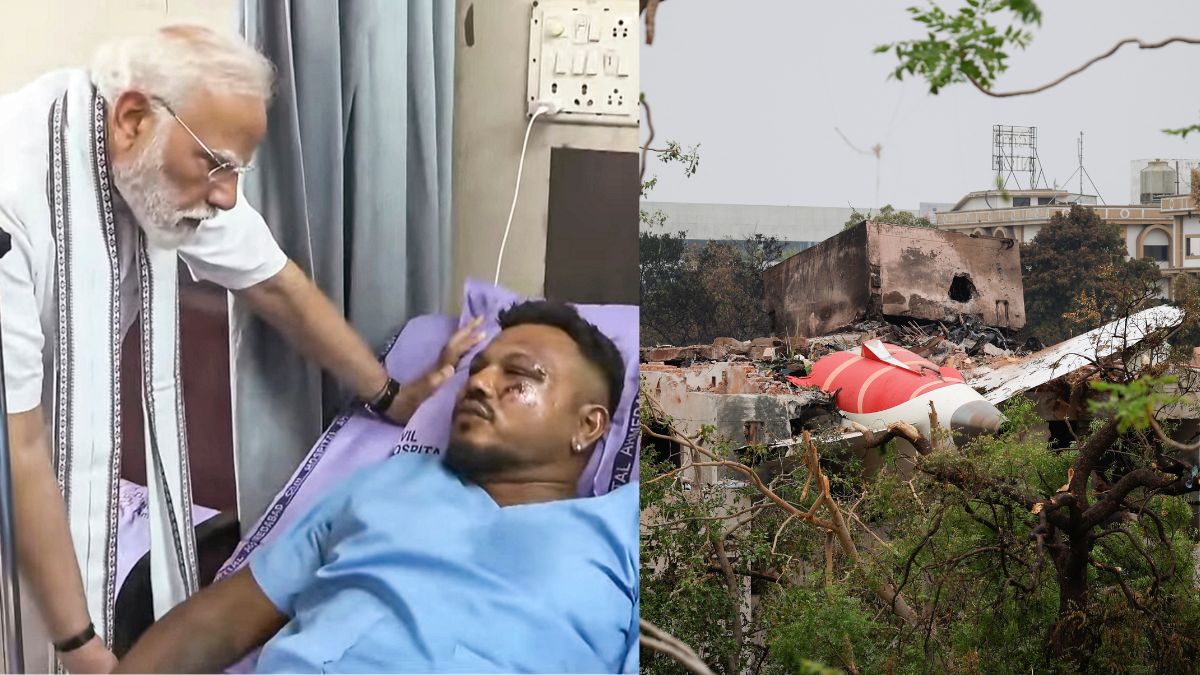

Vishwash Kumar Ramesh, the sole survivor of the Air India AI171 plane crash in Ahmedabad on June 12, 2025, is grappling with severe trauma and is currently seeking psychiatric help to cope with the aftermath of the disaster. The crash, which occurred shortly after takeoff, claimed the lives of 241 passengers and crew members.
Ramesh, a 40-year-old British national of Indian origin, miraculously survived the crash. He was seated in 11A, next to an emergency exit, which broke open upon impact, allowing him to escape the wreckage. He recalls the horrific scene, stating he saw "bodies all around" him. "I was scared… I stood up and ran," he recounted. He remembers the plane feeling stuck mid-air shortly after takeoff, followed by the lights flickering and the aircraft crashing into a building. He witnessed the deaths of the air hostesses and other passengers before his eyes.
The psychological impact of surviving such a catastrophic event is immense. Psychiatrist Dr. Raj Persaud explains the deep psychology of survivor guilt, a common phenomenon where individuals feel bad for surviving when others perished. Survivor guilt has been observed in survivors of various disasters, including the Holocaust and the Hiroshima bombing. Studies show that a significant percentage of disaster survivors experience long-lasting psychological distress; for example, a longitudinal study reported that approximately 46–47% of airplane crash survivors screened positive for PTSD within 2-9 months after the event.
Ramesh's cousin revealed that he is struggling with sleepless nights and avoids talking to relatives. "He still wakes up in the middle of the night and finds it difficult to fall asleep again," his cousin said. He was discharged from the Ahmedabad Civil Hospital on June 17, the same day his brother Ajay's remains were handed over to the family after DNA matching. The brothers were returning to London after visiting family in Diu. Given his distress, his family sought professional psychiatric help. He has not yet made plans to return to London, as his treatment has just begun.
Mental health experts emphasize the long-term psychological implications of such traumatic events, not only for survivors but also for the families of the deceased, witnesses, and first responders. PTSD, anxiety, and depression are common. A 17-year-old witness, Aryan Asari, said he is “still to overcome the psychological trauma” of filming the crash on his phone. The aftermath can lead to cognitive disorders, emotional detachment, and even physical decline.
The Air India crash serves as a stark reminder of the importance of mental health support following air disasters. Providing timely care and sustained psychological support is crucial for the recovery of those affected. Mental health experts caution against glorifying excessive bravery and encourage individuals to acknowledge their feelings and seek help when needed. Support is available via hotline 1800 5691 444.